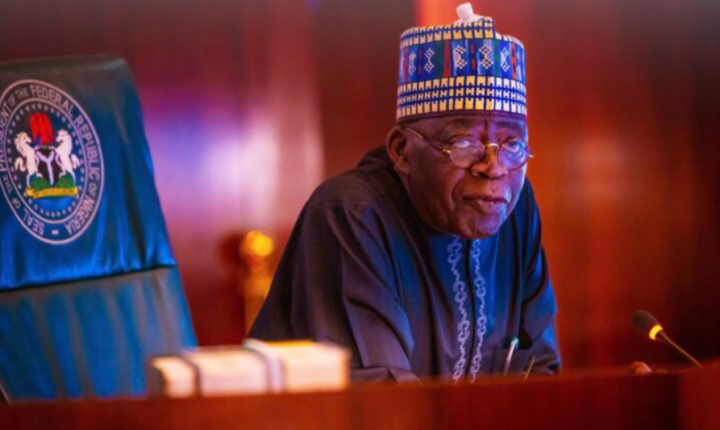The Presidency has signalled a sweeping overhaul of the Nigerian National Petroleum Company Limited (NNPCL), citing concerns over its limited contribution to national crude oil output and the urgency of revisiting asset ownership and governance frameworks. The move comes amid persistent shortfalls in oil production, putting pressure on Nigeria’s energy-dependent economy.
In remarks delivered at the recent annual conference of the Nigerian Association of Petroleum Explorationists (NAPE) in Lagos, the Special Adviser to the President on Energy, Olu Verheijen, revealed that NNPCL’s state-owned upstream arm currently contributes only around 220,000 barrels per day — a figure accounting for less than ten per cent of the country’s daily output. He noted that this underperformance raises critical questions about the company’s capacity to deliver ambitious production targets under its existing structure and financing model.

“The achievement of our national target of three million barrels per day cannot be realised without a paradigm shift in the management and structure of NNPCL. We must evaluate its ownership framework, operational model and relationship with private operators,” Verheijen said. According to him, the “four Rs” of reserves, revenues, reliability and responsibility will guide the restructuring agenda.
Sources within the Presidency say the review will explore options such as increasing private sector participation in greenfield projects, spinning off state-owned assets into commercially autonomous entities, and introducing performance-based governance contracts rather than indefinite tenure appointments.
Nigeria’s current production, disturbed by technical disruptions, security threats and maintenance challenges, has struggled to meet budgetary assumptions. A recent nationwide industrial action triggered by workers of the country’s largest refinery resulted in a 16 per cent drop in oil output, illustrating systemic vulnerabilities. In that context, the decision to refocus NNPCL marks an acknowledgement of the scale of reform needed.
Verheijen, in Lagos, emphasised that the reform programme is not simply about leadership shuffles but about transforming how the company drives value. “We must ask whether NNPCL can on its own fund and execute the drilling campaigns, infill programmes and frontier development required if we are to reach our 2027 and 2030 production benchmarks,” he said.
Industry analysts welcome the move, pointing out that over time state-owned firms worldwide have required significant injection of private capital and operational discipline to remain competitive. “If NNPCL continues to carry the same burden without structural change, the country risks missing its production and revenue goals,” said a senior energy economist.
The restructuring agenda follows earlier bold steps taken by the Tinubu administration. In April 2025, President Bola Ahmed Tinubu dissolved the NNPCL board and removed its previous Group Chief Executive Officer, appointing a new leadership team under the governance of the Petroleum Industry Act 2021 (PIA). That exercise was framed as a foundational reform aimed at aligning the company with commercial objectives, accountability standards and investor-ready disclosure. Analysts say the fresh review deepens the reform path.
The Presidency has set target metrics for the oil and gas sector which include increasing oil production to two million barrels per day by 2027 and rising to three million by 2030, alongside gas production of eight billion cubic feet per day by 2027 and ten billion by 2030. In that light, the weak performance of NNPCL’s upstream operations is seen as a bottleneck.
One key component of the restructuring effort is the shift in asset ownership. Sources inside NNPCL indicate that flagship assets previously managed directly by the state firm could be offered to private-sector operators via production-sharing contracts, divestments or strategic joint ventures, freeing up capital and reducing operational burden on the national company.
The Presidency’s policy framework also seeks to embed commercial discipline into leadership via short tenure, performance contracts with measurable deliverables and transparent reporting. One reform advocate observed: “The era of fixed civil-service appointment for oil executives must end. What matters now is delivery of proven output.”
But stakeholders caution that leadership change must be matched by stable regulatory environment, security of upstream assets and access to finance. The country’s oil sector continues to face insecurity in the Niger Delta, ageing infrastructure and reluctance of some foreign investors due to governance and transparency concerns.
In its response, the NNPCL leadership under Bayo Ojulari welcomed the review, emphasising that the company is committed to adopting commercially viable practices and scaling up production. The company said its first quarterly result under the new leadership recorded improved transparency and some operational pick-up, but acknowledged that structural obstacles remain.
For the federal government, the urgency of reform reflects the reality that oil and gas account for more than half of the country’s export earnings and remain critical for budget financing. In the face of pressure on revenues, the Presidency’s interest in NNPCL reforms signals a recognition that structural change is unavoidable.
If effectively implemented, the overhaul could unlock new investments, improve infrastructure, reduce revenue leakages and reposition Nigeria’s oil sector on a sustainable pathway. Whether the planned reforms materialise remains to be seen in full, but for now the Presidency’s intent aligns with urgent national interest.
Support InfoStride News' Credible Journalism: Only credible journalism can guarantee a fair, accountable and transparent society, including democracy and government. It involves a lot of efforts and money. We need your support. Click here to Donate
